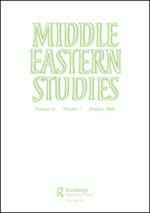The definition of Turkish nationhood after the founding of the Republic has been evaluated and labelled very differently by various scholars. The classical view paralleled the official representation of Republican policies in describing Turkish nationhood as being based on a civic and territorial understanding of nationality. More recent and much more critical scholarship, which enjoys a near-hegemonic position in the study of Turkish nationalism today, claims that the official definition of Turkish nationhood has a clearly identifiable mono-ethnic orientation, manifest in a series of policies and institutions. This article argues that the definition of Turkish nationhood as manifest in state policies is neither territorial nor mono-ethnic, but rather ironically for the adamantly secular Turkish republic, the definition of Turkish nationhood is mono-religious and anti-ethnic, in striking continuity with the Islamic millet under the Ottoman Empire. The reason critical scholars perceive Turkish nationhood as mono-ethnic might stem from the dichotomous view of nationalisms as civic versus ethnic, a dichotomy that has recently been repudiated by some of its erstwhile proponents. Supremacy of the religious over ethnic categories in Turkey, as a historical legacy of the Ottoman millet system, might be applicable to most post-Ottoman states in the Islamic Middle East and North Africa, in contrast to the interplay of ethnicity and religion in Western Europe. This view of Turkish nationhood is confirmed by a dozen interviews that the author conducted with members of the political and intellectual elite of different ideological orientations in Turkey. It is then demonstrated how the new efforts at reformulating modern Turkish identity with reference to Ottoman and Islamic conceptions lead to new inclusion-exclusion dynamics with the Kurds and the Alevis, suggesting that a truly inclusive reformulation has to follow secular and territorial principles.
Hatay, Mete & Altay Nevzat (2009) Politics, Society and the Decline of Islam in Cyprus: From the Ottoman Era to the Twenty-First Century, Middle Eastern Studies 45 (6): 911–933.







